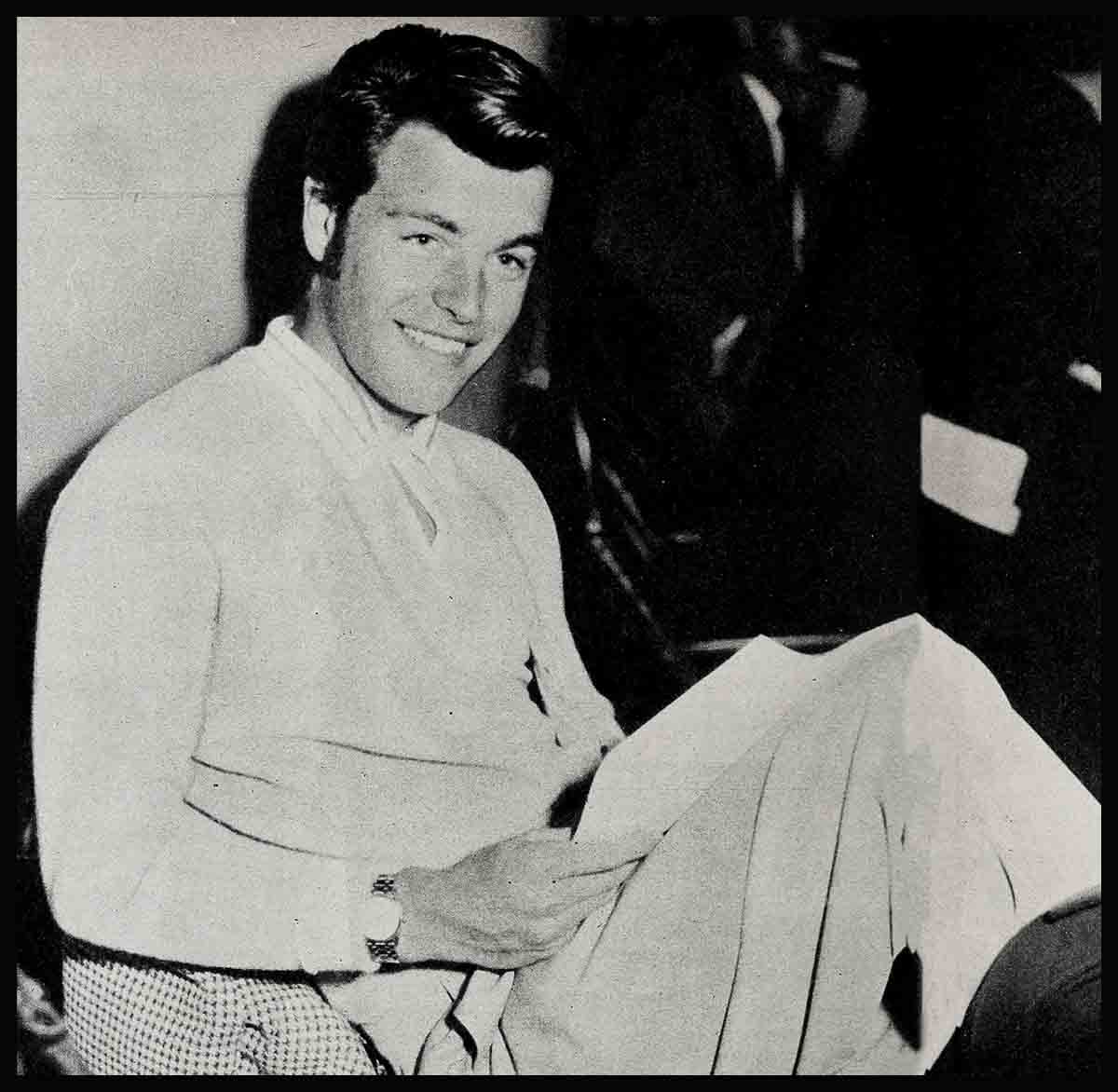
Minding His Business—Robert Wagner
A still handsome, if somewhat grizzled, star of the screen had a short exchange of words with a younger leading man not long ago in New York which would have interested an odd million or two of the latter’s fans. The veteran actor was Clark Gable. The younger one was Bob Wagner. Bob was being led to his table at the 21 Club where he had decided to splurge for lunch. He saw Clark Gable and went right over to him. It was about the first time they had seen each other since Bob used to caddy for Clark at the Bel Air Country Club—caddy for Clark and pester him with questions about getting into the movies.
“Well, you made it,” smiled Clark, as they shook hands. “And I’ve been watching your work. It’s been good. You’re learning your business.”
“Thanks from the bottom of my heart,” replied Bob. “And you can be sure I’ve never forgotten what you told me about being an actor. That it is a business and that like any other business it needs strict attending to!”
That was all, but when an older actor so advises a younger actor these days, not the least of what he means is, “Don’t get tangled up romantically before you have made solid and clear accomplishment professionally.” Further, for anyone who has ever wondered about Bob, and how his thinking about himself runs, this snatch of dialogue between him and Clark Gable has specific implication. It is a good bet that Robert John Wagner, Jr., is following a personal policy which is normal for a young and ambitious man of his age; his work comes first. Everything else, including girls just now, is diversion.
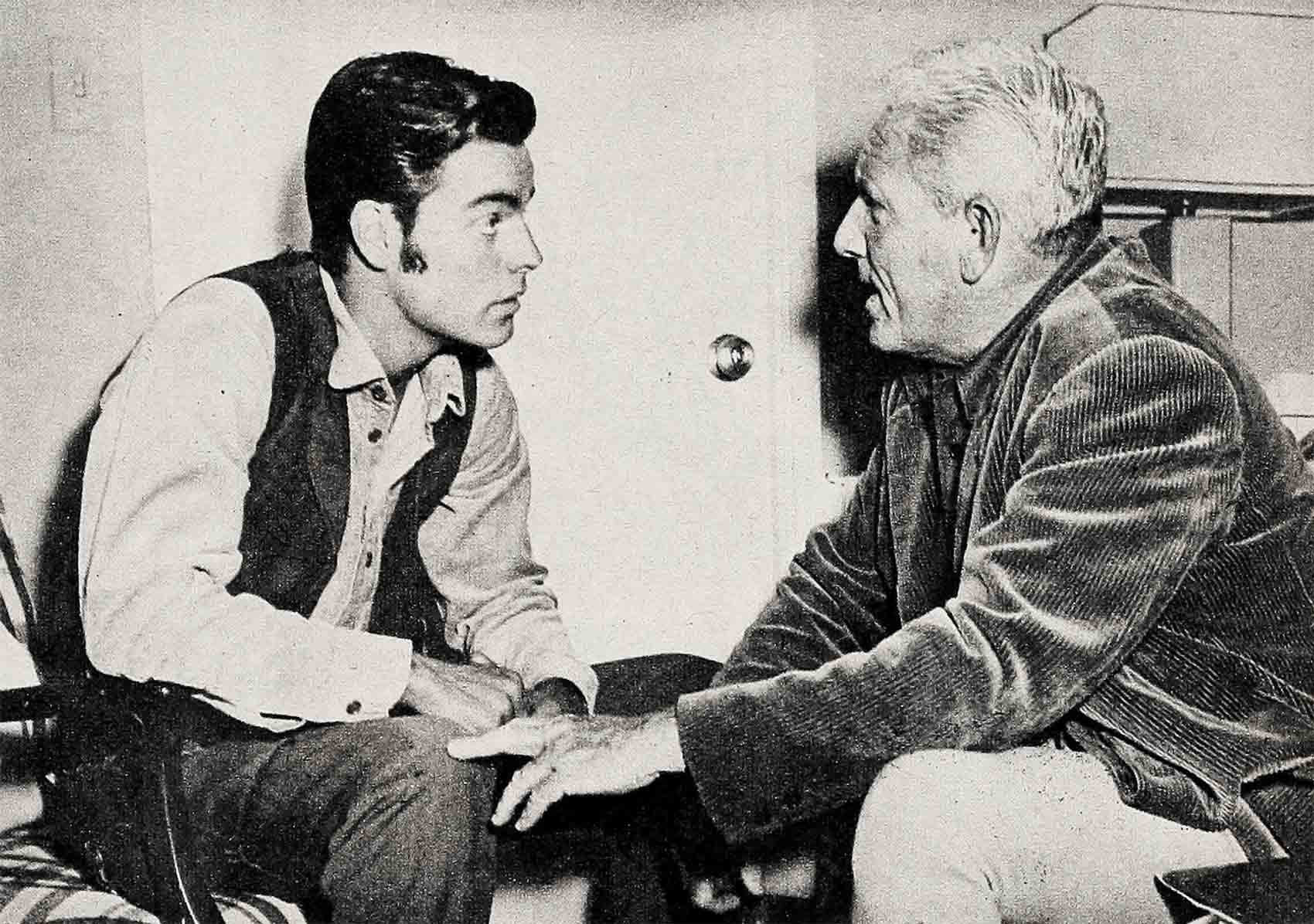
Of course, there is diversion. Bob is young enough to hunger for fun, and he gets a tremendous kick at the way the world has widened and doors have been flung open for him these past two years since his successes in 12-Mile Reef, Prince Valiant, Broken Lance and White Feather.
“It’s a little staggering,” he tells you with a grin, “but I’ve found an effective counterbalance—work. Good, solid work.”
So Bob still talks to girls, but not with the kind of message that would start them making plans.
Yet that report that has been going around for more than a year now, about a hidden clause in Bob’s contract forbidding marriage, has absolutely no basis in fact. There is an excellent reason why no such provision is written into the agreement between Bob and 20th Century-Fox. One of the studio’s executives explained it in quick words:
“Bob’s no fool. He knows that getting a marriage started is as important and requires as much attention as getting a career started. He will want to give his marriage everything he’s got when it happens. But unless he falls in love accidentally—and violently—there is no chance he will propose to any girl within the next few years. And if by chance it does happen and he does fall in love hard—well, that’s another reason why we don’t have any clause against it—no contract could stop him from going ahead and marrying the girl in that case!”
Bob himself made an interesting comment on the subject the other day when he was preparing for some tests in connection with the filming of his newest picture, Lord Vanity. “A fellow is practically twenty before, for the first time in his life, he really becomes an individual,” he said. “I mean before he leaves his childhood home and is away from the parental influences. But no sooner does he attain this state—and boy it’s sure a brief one for some fellows!—than his friends start making with the questions about marriage. Well, sir, it’s sure going to happen to me, all right. I’m the marrying kind. But not yet. Not quite yet.”
“Are you sure?” he was asked. Bob nodded. He was in one of the front offices and he went to the window and pointed out toward the big buildings housing the various stages. “I only have to walk into one of those, just walk in, mind you, to get a real thrill,” he said. “That’s all I need so far. So I can’t say I’m lonely yet as a man. Not really lonely when my work can give me such a wallop. After all, it’s thrilling to be part of a business as farflung and colorful as this.
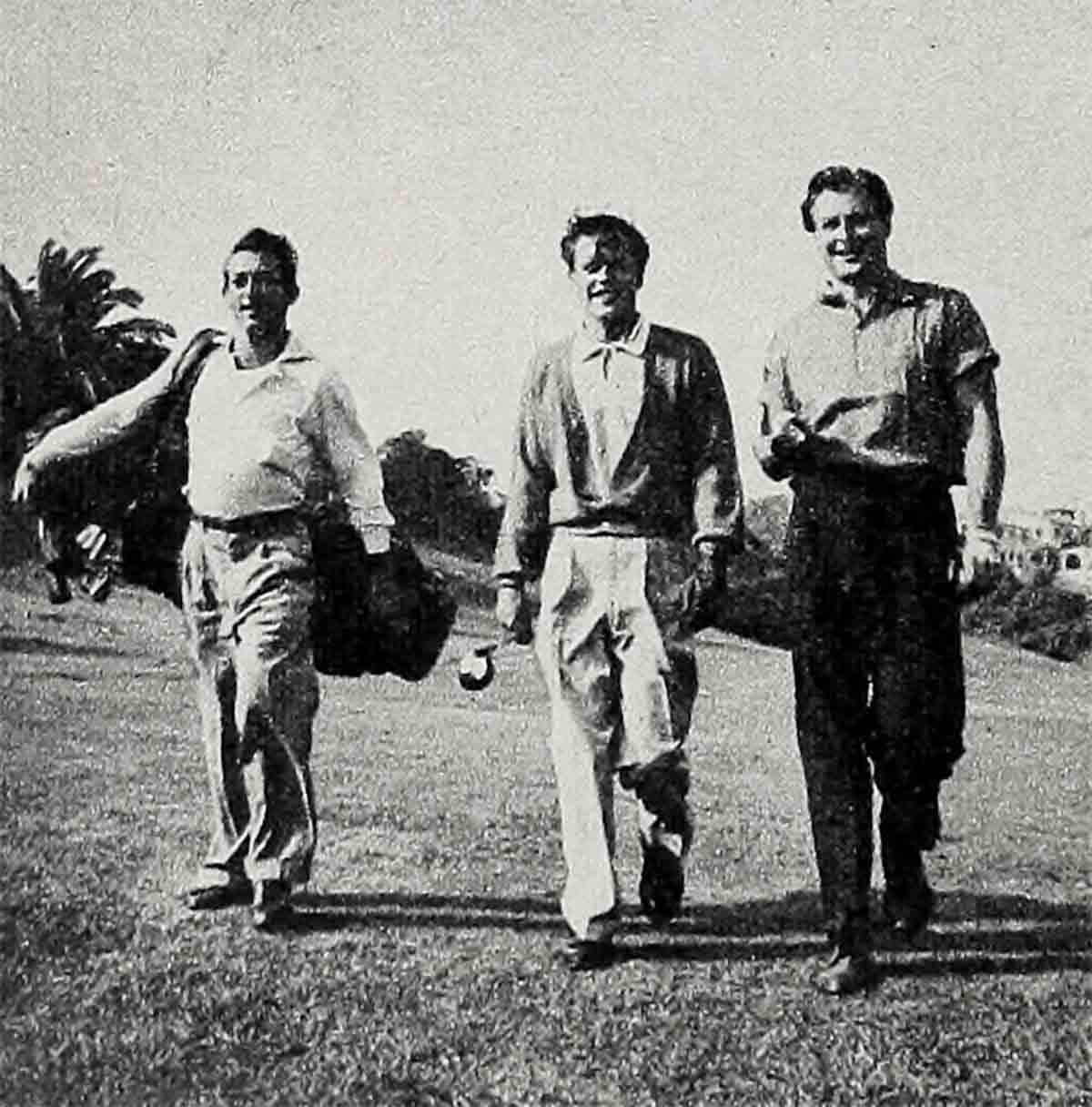
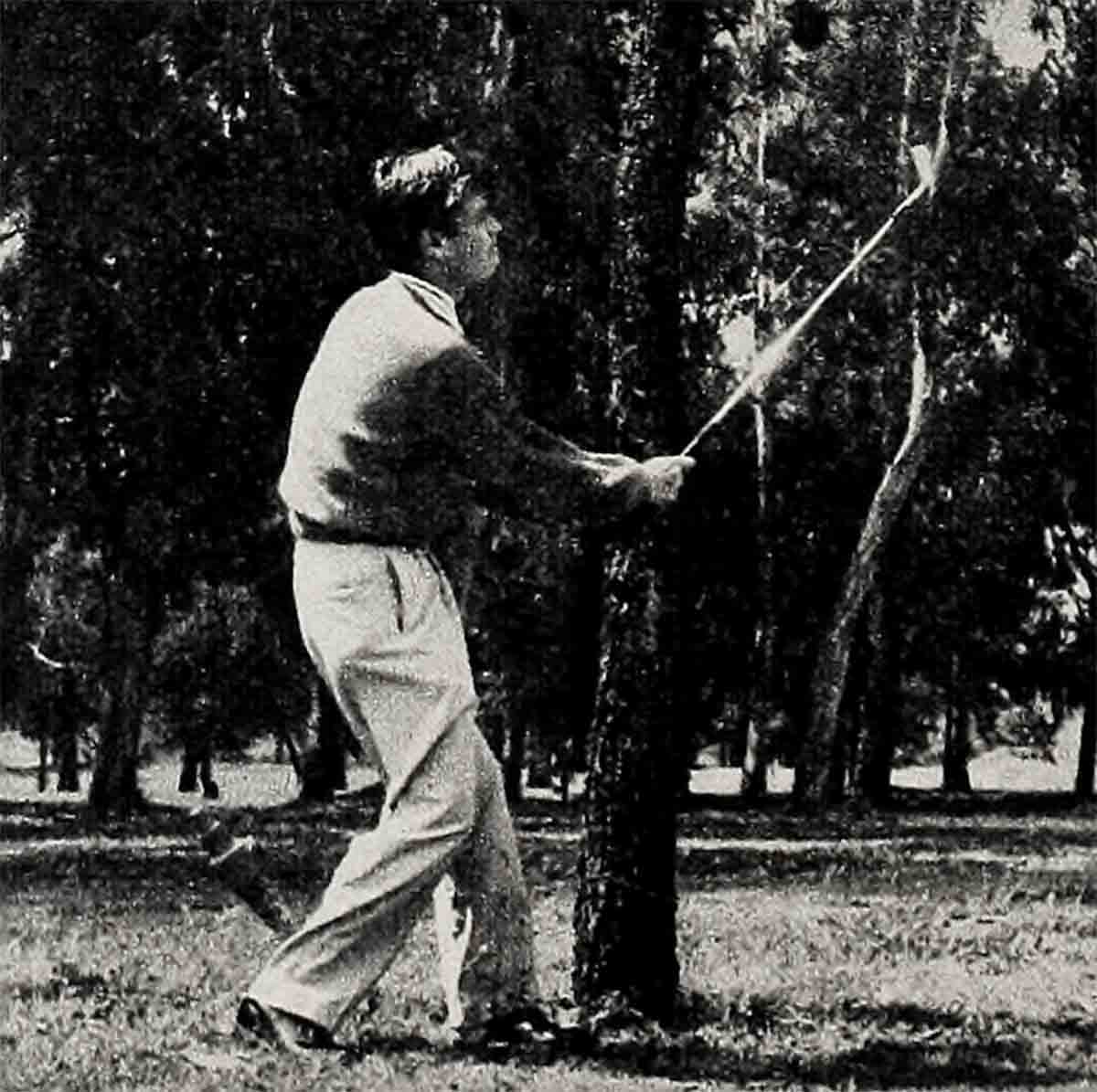
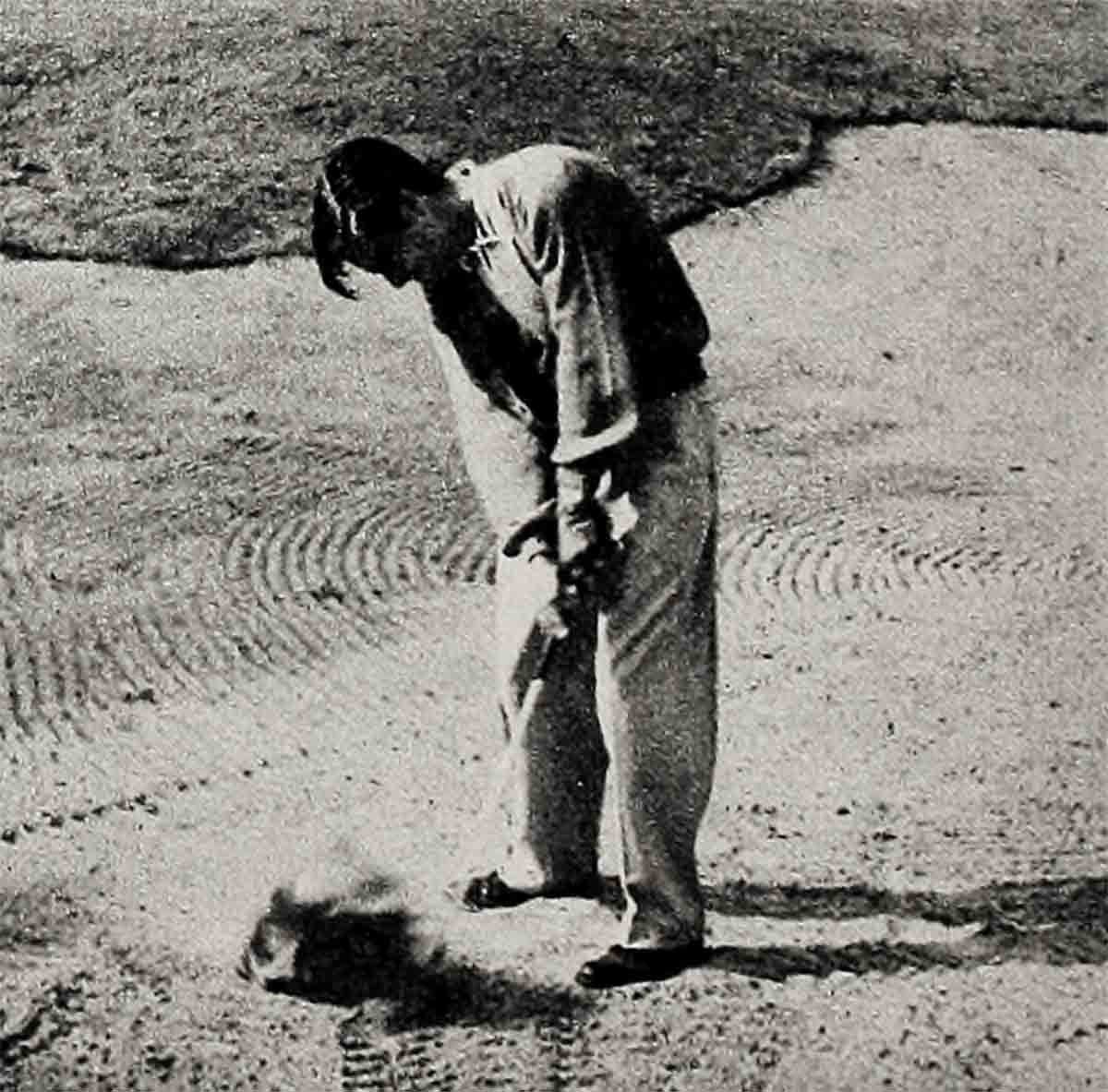
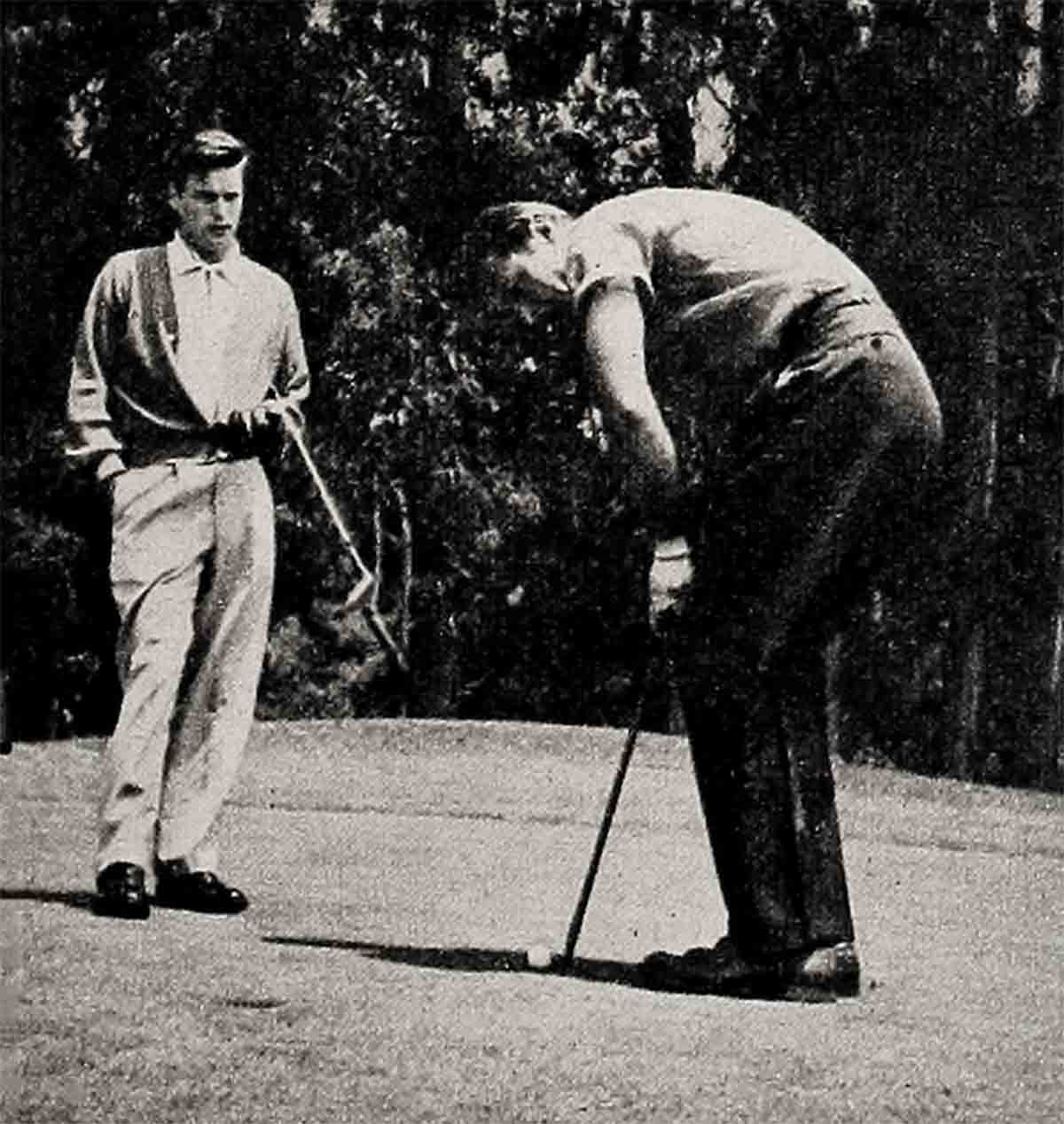
“Just yesterday a producer told me that no minute of a twenty-four-hour day passes without one of my pictures being shown on a screen somewhere; be it in Hong Kong, Thailand, Nome, Alaska or in deepest Africa. I suppose that’s because a number of my pictures have been released internationally within recent months. Now for a kid wha used to think his was the kind of face anybody could forget, and who washed dishes once for $15 a week, this is rich stuff to take, and humbling, too. But I want to take it just a little bit longer. Then? Well, it’ll only need the quickest flash from the right girl’s eyes and there won’t be any use looking for me amongst the stages any more—I’ll be long gone John at the altar!”
“But don’t you think you should have a certain girl in mind?” his questioner asked.
Bob smacked a hand against his forehead. “Oh, no!” he laughed. “If I had a girl on my mind where would I do my thinking about work?”
It should be pointed out that the fascination the movies have for Bob involves more than just stepping in front of the camera as an actor. Even though he insists that he has no thought of ever getting into production he spends a great deal of time with people who are in the technically creative end of the business.
He got started at this because he didn’t like to get involved in studio discussions, feeling abysmally ignorant while others talked mystifyingly about such processes as “scoring,” “dubbing,” “pre-recording,” and “looping.”
“What do you need to know all that for?” someone kidded him once. “All you got to do is look handsome. I bet you never took a girl out in your life who asked one question about dubbing or looping.”
“No,” Bob admitted, laughing. “But if a girl should ask me, what a dope I’d sound like trying to explain if I didn’t know!”
Bob doesn’t need anyone’s urging in his quiet campaign to improve himself, nor is anybody’s kidding going to stop him. When he was cast in Lord Vanity he was invited to discuss the story with Charles Brackett and Delmer Daves who will produce and direct the picture. As they dipped into the period and locale in which the action is laid (18th Century Europe and America), Bob found himself doing much more listening than speaking, and eventually he had to fall completely silent.
Bob had gone to work right after high school, and hardly anyone would expect him to be familiar with the historical details. Bob is nevertheless not going to lean on this for an excuse. Many a night when he could be dating around town he is digging into books. When you add to this stint the other pursuits he must attain proficiency in before he can successfully fill a role in a picture like Lord Vanity, it becomes apparent there is going to be little idleness in his life for a while.
He is constantly surprised at the amount of work involved in producing a picture, even though he has been in some twelve productions since he first attracted interest in Halls Of Montezuma four years ago.
“For instance, I thought when I made Prince Valiant the toughest part of my work would be in getting my lines down right,” he said. “All I overlooked was learning such skills as jousting on horseback with a knight’s long lance, swinging a heavy medieval battle-ax and dueling with a broadsword. It took the noble knights of those days all their lives to get to be any good with these weapons. We in the picture had a few weeks to look as if we were good, even if actually we probably were terrible and couldn’t slay even a midget-sized dragon.”
Learning his lines and the proper delivery used to be a frightening bugaboo to Bob. In one scene, when he made Let’s Make It Legal a few years ago, he blew up twenty-one times. But his improvement since then has been phenomenal. And, as he says with a smile when you talk about his social life, “It takes a lot of night work over my scripts at home to be able to keep on getting paid for day work in the studio.”
This sort of attitude on Bob’s part is beginning to make Hollywood realize that he isn’t going to be the slough-it-off type of star who figures he can get by in his career with a smile for the camera and a wave for the crowd. Someone was reminding him recently about the long grinding years the great stars of the legitimate stage used to put in before they were considered as masters of their art. “Don’t remind me!” begged Bob. “I can already see that I’ll be years catching up with the prominence the studio has given me.”
Everyone who knows Bob’s story will recall that for a short period in his life he bowed to the wishes of his father, who is in the steel business, and undertook to learn that business. Actually he tried his hand at selling stainless steel.
He didn’t work at it long, but he found there was one aspect of the job that he wasn’t bad at—meeting people and establishing the warm personal relationship necessary in sales promotion. It was his father who first realized this.
They were talking about Bob’s desire to concentrate on movie work, and his dad, who was arguing against the move, citing Bob’s lack of acting experience as a handicap, unconsciously strengthened Bob’s case. “Our steel customers all like you,” he said. “My reports are that they like to have you come around and see you again. That shows you have a good personality.” Then he had to laugh because what he had said was easily as good a reason for Bob’s becoming an actor as it was for him to sell steel.
But though Bob’s father opposed him originally, and Bob felt he had hurt him by leaving the steel business, he knows his success has pleased everyone at home and that he hasn’t “flopped” as a son.
He also knows that with his kind of people a son is expected to make another sort of success. He is expected to marry the right girl and raise a fine family.
This may be only in the back of his mind right now, but it’s there. In the meantime he wants another big picture or two to his credit to further prove to 20th Century-Fox that they picked the right boy when he was put under contract. Not that his company needs any such additional proof. When Bob first went to work there he wrote to Darryl Zanuck, head of the studio, thanking him for the opportunity to act and assuring him that he would come through. Just the other day he met Mr. Zanuck at the door of the administration building.
“That was a nice letter,” said Mr. Zanuck, who has a long memory. “I’m glad you have kept your promise. In fact you are doing a wonderful job.”
Bob says that to him these words were like finding a firm handhold while climbing a steep mountain. “I really think that maybe I have a chance to make it now,” he says. “If work will do it, study and work, I’ll study and work.” He laughed suddenly. “Boy, when I do meet the right girl I ought to be in a great mood for romance!”
THE END
—BY ALICE FINLETTER
It is a quote. MODERN SCREEN MAGAZINE JANUARY 1955




